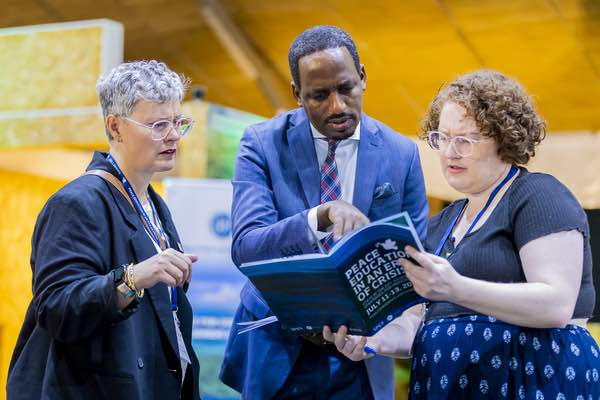
Hundreds of researchers, academics, policy makers, and civil society representatives are convened at the University of Rwanda for a 3 day international conference on peace education. Organized by the UR in collaboration with Kent State University and AEGIS Trust, the conference seeks to generate reflections from participants on best approaches to address conflict to promote human wellbeing and realize sustainable peace.
In his opening remarks, the UR Vice Chancellor Dr Kayihura Didas Muganga labelled the conference a platform to provide participants with a platform to exchange experiences, good practices and ways to better instil peace and values education. He added that its outcome is expected to help decision-makers to make improved actions and decisions.
Dr Kayihura went on stating that following the genocide against the Tutsi that claimed over a million innocent lives, the government of Rwanda initiated a number of informal and formal programmes that address peace in different ways.
“Various efforts have been made at all levels of education from primary up to tertiary education, and by various players including the civil society organizations and the Government of Rwanda,” He said.
Among the important keynote speakers in attendance was Dr Mandy Munro-Stasiuk, the Dean of College of Arts and Sciences at Kent State University. In her remarks, she noted that Rwanda was a reliable country to host the conference given its commitment to embed peace education in the national curriculum and among the communities across the country.
The conference was co-organized and hosted by the Centre for Conflict Management, one of the research and academic centres of UR college of Arts and Social Sciences (CASS). Speaking on the occasion, Dr Alphonse Muleefu, the CASS Principal amplified the conference contribution towards resolving conflict peacefully, and creating the conditions conducive to peace at interpersonal, intergroup, national and international levels.
“The conference contributes to the global understanding of Peace Education as a process of promoting the knowledge, skills, attitudes and values needed to bring about behavioural change that will enable children, youth and adults to prevent conflict and violence at all levels” Muleefu said. (End)
